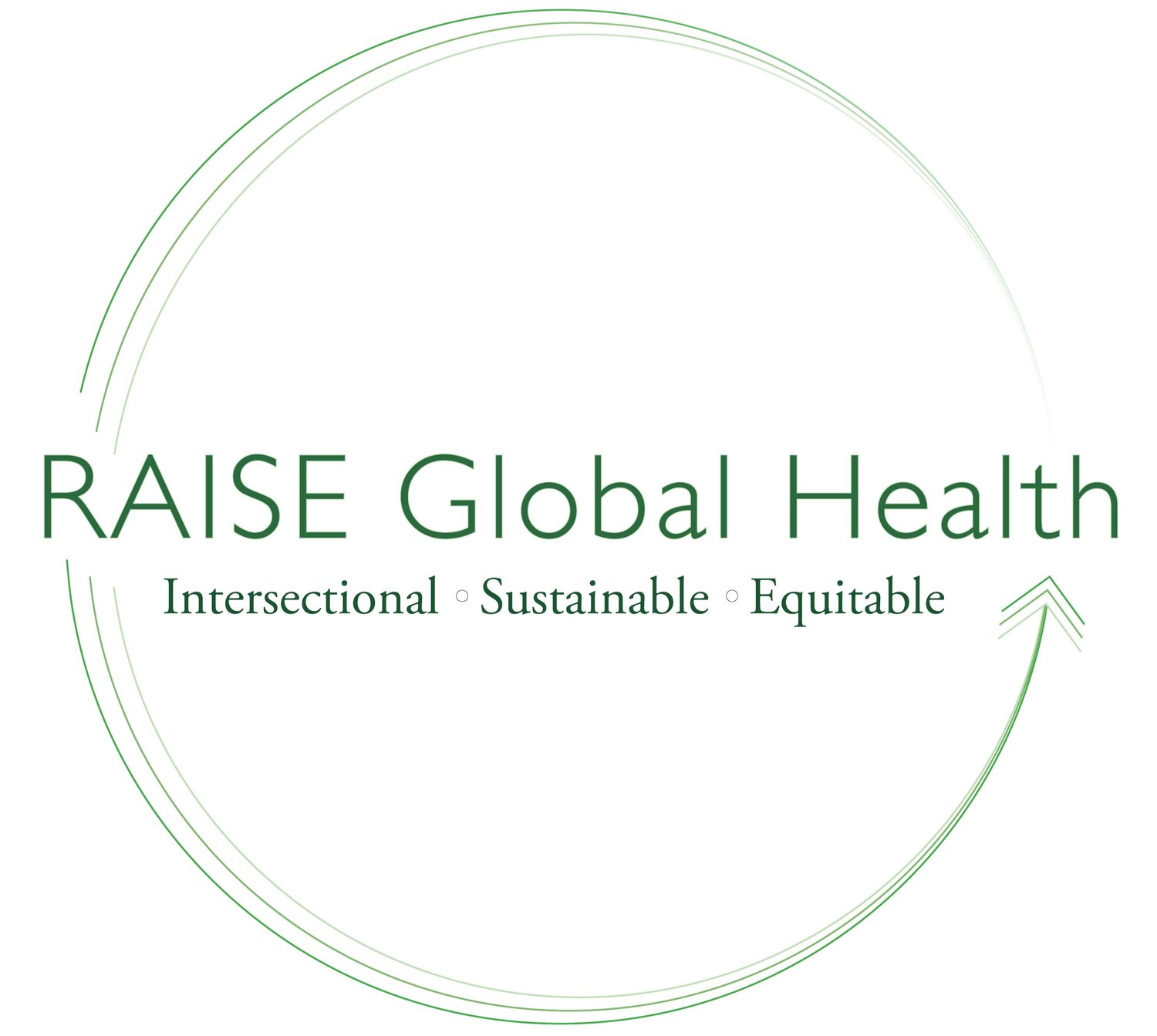Reimagining Approaches to Intersectional Sustainable & Equitable Global Health
-
At RAISE, we believe that our approach to global public health, specifically sexual and reproductive health and rights (SRHR), is and should be different. We have identified a critical gap in current global health initiatives that lack true decolonialist, intersectional feminist, and gender-equitable perspectives.
We aim to “raise” the voices of the populations we work for through strategic, transparent, and equitable collaboration with international experts on our projects. Our approach is rooted in our belief that sustainable and effective global health must center the unique and diverse experiences of individuals, communities, and societies that are the focus of our work.
-
RAISE strives to acknowledge and address the historical and ongoing legacies and harmful impacts of patriarchy, colonialism, imperialism, extractivism, racism, and other systems of oppression in global health systems, policies, and initiatives. We aim to challenge the dominant knowledge systems and power structures in global health and development sector (which are currently held by the Global North) by promoting local knowledge, expertise, and leadership, and advancing self-determination and autonomy for communities.
By addressing the multiple, intersecting forms of oppression that uniquely impact health outcomes - such as but not limited to gender, race, class, sexuality, socioeconomic status, and ability - we apply an intersectional feminist lens to our work. We aim to challenge patriarchal norms and power structures, promoting the fulfillment of sexual and reproductive rights for all, and addressing all forms of violence including Sex and Gender-Based Violence (SGBV).
In practice, we are aware that integrating decolonization and intersectional feminism into global health and SRHR projects and initiatives has to be a practice and not just ‘values’. It requires a commitment to ongoing learning, reflection, and auto-criticism - something we at RAISE are committed to doing. You can read more about our policies, approach to projects, and growth process in our blog and “resources” section which is coming soon.
-
Sustainability efforts in the global development sector are often driven by donors’ interests with a ‘ticking-the-box’ attitude and lack genuine community engagement and participation. Global health entities continue to unnecessarily fly their ‘international’ experts to project sites - neglecting the expertise available within the local populations, the possibility of remote collaboration, and the deteriorating climate. The practice of labor and knowledge extractivism (such as unfair/nontransparent payment for the so-called ‘local/national’ experts) is also common, threatening the possibility of creating sustainable and relevant knowledge pools. These practices are going on despite the fact that, for example, a) The Global North has been responsible for the majority of greenhouse emissions while the Global South is more vulnerable to climate change consequences, or b) Crucial global health resources are often spent for Global North intermediary services.
RAISE aims to co-develop and co-deliver solutions that not only address immediate needs, but also create lasting and positive change for future generations. Wherever possible, we strive to take a meaningful participatory approach and engage the people being impacted by our projects - as they are the best knowers of their own context. By working closely with local partners, collaborators, and communities, we aim to create sustainable solutions that can continue to have impact long after our involvement has ended.
Our sustainability principle also means we embrace the opportunities provided by remote collaboration to limit carbon gas emission contributed by unnecessary travels. At the same time, this approach will also enable resource mobilization and optimization to fund activities more crucial to the projects.
Lastly, RAISE also applies financial sustainability in how we budget our works and pay our experts and collaborators. This means we do not do exploitative contracting, employment, or payment practices for any labor involved in our work.
-
Hand in hand with decolonialism, equity is frequently invoked as a guiding principle in global health, yet is often not effectively operationalized, and health disparities continue to persist. This can be seen from the disparity between consultant billing fees and actual reimbursement for local experts, who “gets a seat at the table” and whose voice is actually listened to even when they sit at the table, the persistence of “helicopter” research, and the phrase of “capacity building” often implicating that the people being impacted by projects implemented in their home environments lack capacity1 All these practices reflect the core of the inequitable lens deriving from the industrial-colonial-patriarchal-white savior complex. There is a need for a more critical and transformative approach to these buzzwords in global health, one that challenges patriarchal power structures, centers marginalized voices, and addresses the root causes of health inequities.
Equity is about more than just addressing individual needs. It requires a deep understanding of the ways in which systems and structures shape individual experiences and inform broader societal norms. By taking an intersectional approach and considering the ways in which issues of gender, sexuality, race, class, religion, and other various social factors intersect, RAISE is able to and aims to continuously improve our understanding of the barriers that prevent marginalized communities from accessing SRHR and health information and services - which, in turn, critically informs the advice and solutions we provide.
“OUR MISSION IS TO CENTRE AND LEVERAGE THE VOICES AND NEEDS OF PEOPLE IMPACTED BY GLOBAL HEALTH PROJECTS THROUGH APPLYING AN INTERSECTIONAL FEMINIST, SUSTAINABILITY FOCUSED, AND EQUITABLE LENS, APPROACH, AND PRACTICE TO OUR COLLABORATIONS AND WORK.”
— Our Mission
“OUR VISION IS A WORLD WHERE THE STANDARD FOR GLOBAL HEALTH INITIATIVES IS TO PRIORITIZE THE VOICES AND NEEDS OF COMMUNITIES, AND WORK COLLABORATIVELY WITH THEM TO CREATE SUSTAINABLE AND EQUITABLE SOLUTIONS. WE STRIVE TOWARDS A FUTURE WHERE CLIMATE SUSTAINABILITY AND INTERSECTIONAL FEMINIST PRINCIPLES ARE MAINSTREAM RESULTING IN IMPROVED HEALTH OUTCOMES AND SOCIAL JUSTICE FOR ALL.”
— Our Values
